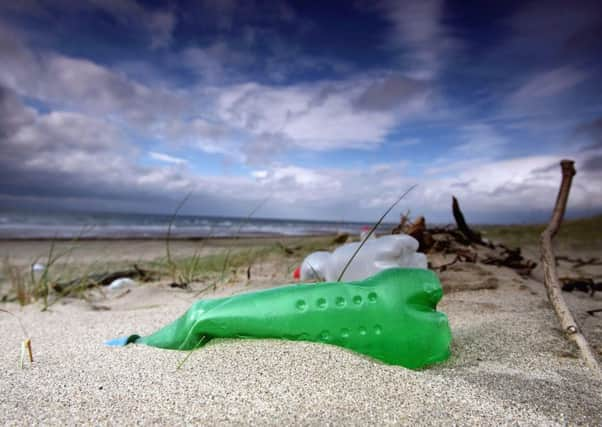Ilona Amos: Time to cut back on killer plastic packaging


The properties that make plastics so useful are also part of the problem. The material does not decompose easily and can remain in the marine environment for hundreds, even thousands, of years.
The scale of the problem is becoming increasingly obvious as ocean currents gather the detritus in massive, and ever growing, floating garbage islands.
Advertisement
Hide AdAdvertisement
Hide AdThis rubbish poses a huge threat to marine wildlife. Everyday items such as bags, bottles and tiny plastic beads used in beauty scrubs and toothpastes are regularly found in the stomachs of turtles and other creatures, and in some cases have caused their death through starvation or choking.
Scotland’s mainland coastline stretches for 6,000 miles, with everything from rocky shores to white, sandy beaches and bustling harbours. Around 39,200 species live in ours seas, including internationally important seabirds and whales.
But all this is in danger. Surveys carried out by the Marine Conservation Society (MCS) collected more than 53,000 items of litter from a 22km sample of Scottish beaches in 2010. That’s nearly 2,382 items per kilometre, with nearly two thirds of those items made of plastic.
Studies have identified 180 different marine species that have ingested plastics, which can get trapped in the animal’s stomach causing ulceration, making them feel full and stopping them eating. It is also believed toxic chemicals accumulate on some particles, and when swallowed can transfer into the food chain. And the situation is only going to get worse unless we all take some drastic steps to change our behaviour.
So it was with these shocking truths in mind that I decided to try a test run for a challenge issued by the MCS – to give up single-use plastics in June, even if only for a day. How hard could it be?
Actually, much harder than I thought. I’m ashamed to confess that I failed, falling at the first fence.
When I dashed out from the office to get a bite for lunch I discovered it wasn’t going to be easy to pick up a salad or sandwich from the local supermarket and transport it back to my desk without some kind of container. And when I looked around it became obvious just how many products are packaged in plastic trays or wrapping or some sort – even much of the fruit and veg.
It’s true that some things are easier to sell loose than others but it’s surely time that big companies took steps to reduce packaging or at least switch to biodegradable options. We all get charged for carrier bags so it seems ridiculous to fill up your bag-for-life with cellophane wrapping, plastic tubs and polystyrene trays.
Advertisement
Hide AdAdvertisement
Hide AdThe good news is I’m not going to let my disastrous initial attempt at going plastic-free stop me trying harder in future. I believe it’s possible to drastically cut back on the amount of pre-packaged goods I buy – no matter how convenient they seem at the time. The key is better forward planning. Why not try it next month – more than 800 others in the UK are expected to join you.